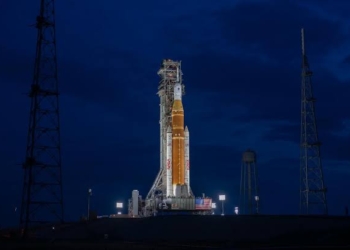Days after the unsuccessful launch of EOS-09 aboard the PSLV-C61, the Indian Space Research Organisation (ISRO) has temporarily grounded its PSLV fleet.
The failure, caused by a sudden drop in chamber pressure during the third stage of flight, led to the loss of the Earth observation satellite and its rocket over the Indian Ocean.
A high-level committee has been formed to investigate the anomaly, with experts suspecting a rupture in the fibre casing of the third-stage motor. Despite this setback, ISRO remains confident that the issue will be resolved swiftly and that operations will resume soon.
Meanwhile, preparations for ISRO’s upcoming NASA-ISRO Synthetic Aperture Radar (NISAR) mission remain unaffected. Scheduled for launch in June 2025 aboard a GSLV rocket, the $1.5 billion collaboration with NASA will deploy one of the world’s most advanced radar imaging satellites to monitor Earth’s environmental changes and natural hazards.
ISRO officials stress that the PSLV grounding is a precautionary measure and does not impact other critical missions, including India’s ambitious human spaceflight program, Gaganyaan. A detailed report on the PSLV failure is expected by mid-June.





























